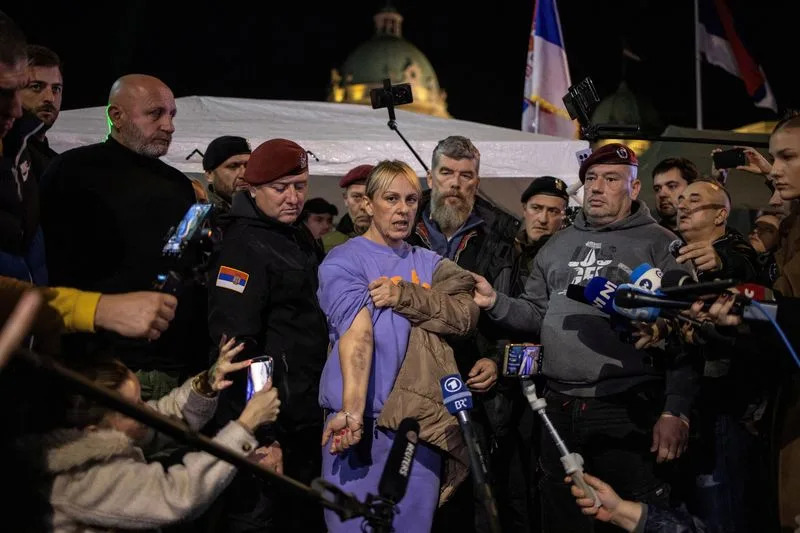SERBIAN MOTHER ENDS HUNGER STRIKE BUT VOWS TO FIGHT ON WITH PROTESTERS

Grief that became a national rallying point
Dijana Hrka has called off the hunger strike that made her the face of public anger over a deadly roof collapse in Serbia, saying she wants to stay alive to keep fighting alongside a growing anti-government protest movement. The 48-year-old mother had camped for two weeks outside the parliament building in Belgrade, refusing food in a personal campaign for accountability over last year’s collapse of a newly renovated railway station roof in Novi Sad, which killed 16 people, including her 27-year-old son Stefan. Her makeshift tent and the image of a grieving parent confronting the state became a focal point for students, academics, opposition politicians and ordinary citizens who see the disaster as a symbol of deeper problems in Serbia. They accuse the authorities of tolerating substandard construction, crony contracts and weak oversight while failing to prosecute anyone over the tragedy.
Hrka announced the end of her strike in front of reporters and supporters, saying she could “do much more alive” than by slowly starving herself. She showed the bruises on her arm from medical checks and spoke in a frail but defiant voice, thanking protesters who had visited her and promising to remain in the streets with them. Organisers of the youth-led rallies say her stand has helped broaden their cause beyond party politics, turning it into a moral argument about justice, safety and dignity in public life. They now portray the campaign as both a call for accountability over one accident and a wider rejection of what they see as a culture of impunity.

Protest movement tests Vucic’s grip on power
The protests triggered by the collapse have swelled into some of the largest anti-government gatherings Serbia has seen in years, challenging President Aleksandar Vucic’s long, dominant rule. What began as vigils and small marches has turned into regular mass rallies in Belgrade and other cities, with demonstrators demanding resignations, early elections and criminal charges against those responsible for the failed station project. Many participants are young Serbians who say they feel locked out of opportunities at home and are tired of hearing about corruption and negligence only after disaster strikes.
The government insists it is responding, pointing to internal reviews and promising to complete investigations, but critics argue that similar pledges after earlier accidents rarely led to punishment for senior officials or politically connected contractors. Analysts say the outcome of this confrontation will signal whether Serbia is prepared to strengthen the rule of law as it seeks closer ties with the European Union, or whether entrenched networks can weather yet another crisis. For now, Hrka’s decision to end her strike is seen as a tactical pause rather than a retreat: activists say her voice will carry more weight in rallies, strategy meetings and any future talks. As she left her tent, supporters applauded and chanted her son’s name, turning a personal act of survival into a renewed call for change.












